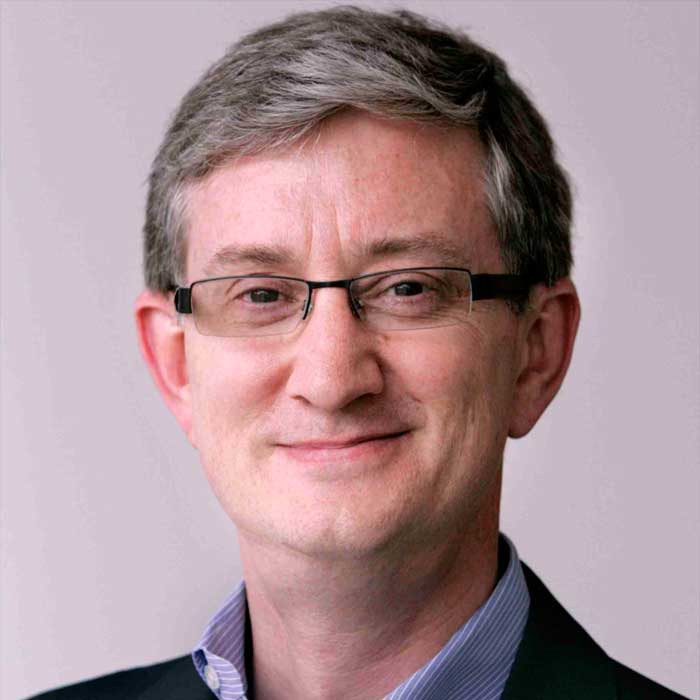
"I think there are problems with compact disc copy protection that can’t be resolved."
- Edward Felten
Edward Felten has worked hard to gain confidence and overcome, at least to some extend, an in-born shyness. As a child, and into his early twenties, nervous energy may have caused Edward to bite his nails or express his nervousness in other ways.
His interest in technology, law and policy has made him testify in numerous important lawsuits, and made significant contributions to the empowerment of individuals in using computers.
Early Life
Edward William Felten was born March 25th, 1963. He is a professor of computer science and public affairs at Princeton University. Felten attended the California Institute of Technology and graduated with a degree in Physics in 1985. He worked as a staff programmer at Caltech from 1986 to 1989 on a parallel supercomputer project at Caltech.
He then enrolled as a graduate student in Computer Science at the University of Washington.
He was awarded an Master of Science degree in 1991 and a Ph.D in 1993. His Ph.D. thesis was on developing an automated protocol for communication between parallel processors.
Work
Felten is the founding Director of Princeton's Center for Information Technology Policy. His research interests include computer security and privacy, especially relating to media and consumer products; and technology law and policy.
He has published about eighty papers in the research literature, and two books. His research on topics such as web security, copyright and copy protection, and electronic voting has been covered extensively in the popular press.
His weblog, at freedom-to-tinker.com, is widely read for its commentary on technology, law, and policy.
In United States vs. Microsoft, Felten was the lead computer science expert witness for the Department of Justice in the Microsoft antitrust case. This was where the software company was charged with committing a variety of antitrust crimes.
During the trial, Microsoft's attorneys denied that it was possible to remove the Internet Explorer web browser from a Windows 98 equipped computer without significantly impairing the operation of Windows. Felten testified that it was possible to remove Internet Explorer functionality from Windows without causing any problems with the operating system.
He demonstrated his team's tool in court, showing 19 ways in which it is normally possible to access the web browser from the Windows platform that his team's tool rendered inaccessible.
Felten has testified in other important lawsuits. He has testified before the Senate Commerce Committee on digital television technology and regulation, and before the House Administration Committee on electronic voting.
In 2004, Scientific American magazine named him to its list of fifty worldwide science and technology leaders. On November 4, 2010 he was named the Chief Technologist for the United States Federal Trade Commission, a position he officially assumed January 3, 2011.
Felten has done a variety of computer security research, including groundbreaking work on proof-carrying authentication and work on security related to the Java programming language, but he is perhaps best known for his paper on the Secure Digital Music Initiative (SDMI) challenge.
In 1993, he joined the faculty of Princeton University in the Department of Computer Science as an Assistant Professor. He was promoted to Associate Professor in 1999 and to Professor in 2003. In 2006, he joined the Woodrow Wilson School of Public and International Affairs, but computer science remains his home department. In 2005, he became the Director of the Center for Information and Technology Policy at Princeton.
He has served as a consultant to law firms, corporations, private foundations, and government agencies. His research involves computer security, and technology policy.
As part of a contest in 2000, SDMI (Secure Digital Music Initiative) invited researchers and others to try to break the digital audio watermark technologies that they had devised. In a series of individual challenges, the participants were given a sample audio piece, with one of the watermarks embedded. If the participants sent back the sample with the watermark removed (and with less than an acceptable amount of signal loss, though this condition was not stated by SDMI), they would win that particular challenge.
Felten was an initial participant of the contest. He chose to opt out of confidentiality agreements that would have made his team eligible for the cash prize. Despite being given very little or no information about the watermarking technologies other than the audio samples and having only three weeks to work with them, Felten and his team managed to modify the files sufficiently that SDMI's automated judging system declared the watermark removed.
SDMI did not accept that Felten had successfully broken the watermark according to the rules of the contest, noting that there was a requirement for files to lose no sound quality. SDMI claimed that the automated judging result was inconclusive as a submission, which simply wiped all the sounds off the file would have successfully removed the watermark but would not meet the quality requirement.
Edward Felten was given the EFF (Electronic Frontier Foundation Pioneer Award) Pioneer Award in 2005 along with Patrick Ball and Mitch Kapor. It is an annual prize for people who have made significant contributions to the empowerment of individuals in using computers.
In November 2010, Felten was named the first Chief Technologist of the Federal Trade Commission.
Personal Life
Felten lives in Princeton, New Jersey with his family. From 2006 to 2010, he was a member of the board of the Electronic Frontier Foundation (EFF).
In 2007, he was inducted as a Fellow of the Association for Computing Machinery.
The next year, Felten and his students were part of the team that discovered the cold boot attack, which allows someone with physical access to a computer to bypass operating system protections and extract the contents of its memory.